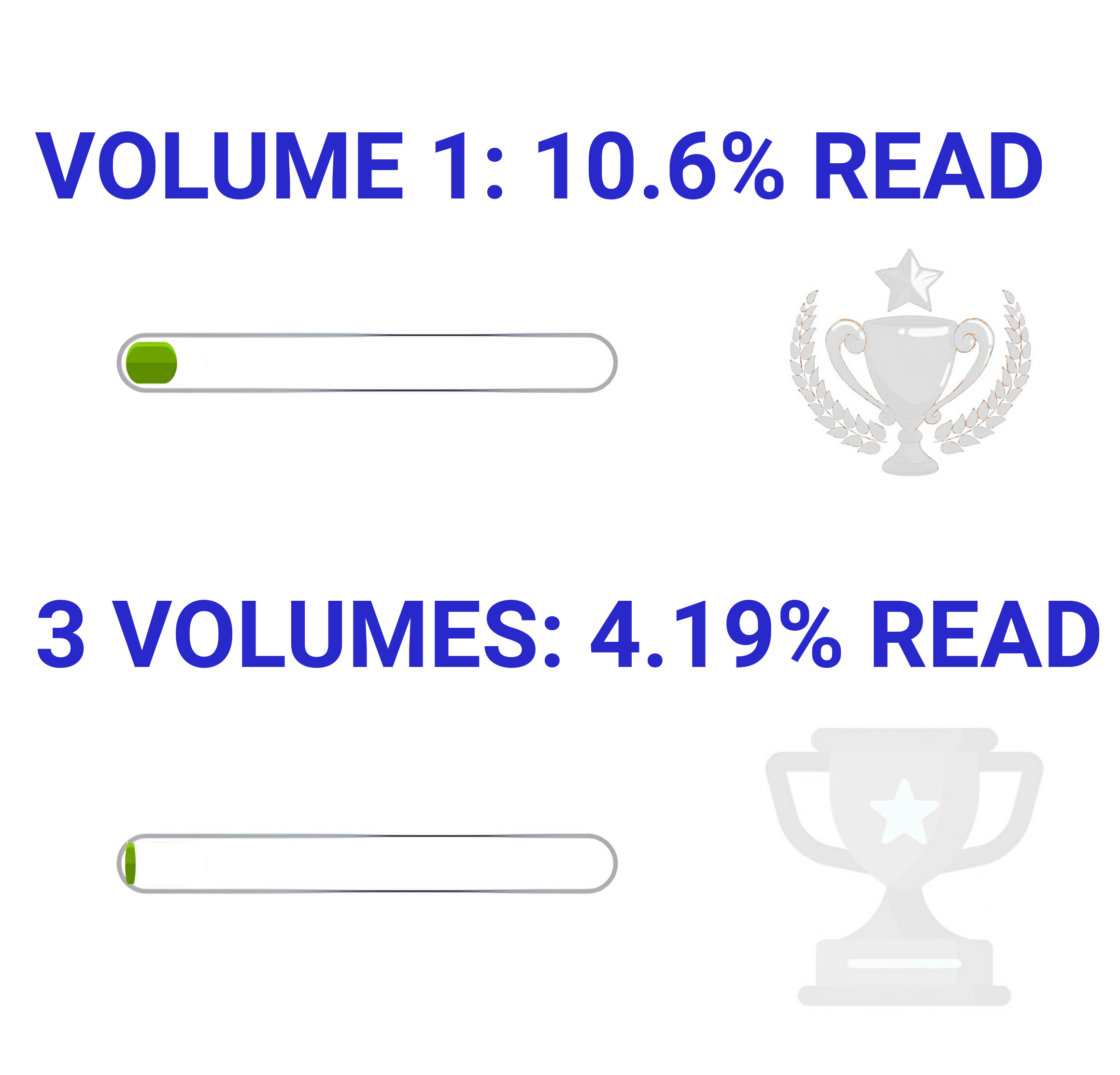Welcome to baby Marxist rehabilitation camp.
We are reading Volumes 1, 2, and 3 in one year. (Volume IV, often published under the title Theories of Surplus Value, will not be included in this particular reading club, but comrades are encouraged to do other solo and collaborative reading.) This bookclub will repeat yearly until communism is achieved.
The three volumes in a year works out to about 6½ pages a day for a year, 46⅔ pages a week.
I'll post the readings at the start of each week and @mention anybody interested. Let me know if you want to be added or removed.
Congratulations to those who've made it this far. We are almost finished the first three chapters, which are said to be the hardest. So far we have just been feeling it out, now is when we start to find our stride. Remember to be methodical and remember that endurance is key.
Just joining us? It'll take you about 4-5 hours to catch up to where the group is.
Week 3, Jan 5-21, we are reading Volume 1, Chapter 3 Section 3 'Money', PLUS Volume 1, Chapter 4 'The General Formula for Capital', PLUS Volume 1, Chapter 5 'Contradictions in the General Formula'
Discuss the week's reading in the comments.
Use any translation/edition you like. Marxists.org has the Moore and Aveling translation in various file formats including epub and PDF: https://www.marxists.org/archive/marx/works/1867-c1/
Ben Fowkes translation, PDF: http://libgen.is/book/index.php?md5=9C4A100BD61BB2DB9BE26773E4DBC5D
AernaLingus says: I noticed that the linked copy of the Fowkes translation doesn't have bookmarks, so I took the liberty of adding them myself. You can either download my version with the bookmarks added, or if you're a bit paranoid (can't blame ya) and don't mind some light command line work you can use the same simple script that I did with my formatted plaintext bookmarks to take the PDF from libgen and add the bookmarks yourself.
Resources
(These are not expected reading, these are here to help you if you so choose)
-
Harvey's guide to reading it: https://www.davidharvey.org/media/Intro_A_Companion_to_Marxs_Capital.pdf
-
A University of Warwick guide to reading it: https://warwick.ac.uk/fac/arts/english/currentstudents/postgraduate/masters/modules/worldlitworldsystems/hotr.marxs_capital.untilp72.pdf
-
Reading Capital with Comrades: A Liberation School podcast series - https://www.liberationschool.org/reading-capital-with-comrades-podcast/

No, no, no. "Value" is a shorter way of saying "exchange value"
The duality is: [Use-value] vs [Value], or, said differently: [Use-value] vs [Exchange-Value]
There's no conceptual duality of: ~~[Value] vs [Exchange-Value]~~, put that out of your mind.
This seems about right so far. Value is like the "true" or "proper" price, determined by embedded labour. The difference between price and value will be talked about more later; actually Marx hasn't really discussed price yet. But for now, just think of value as the proper price. (Like in Ch.5 in this week's reading: "It is true that commodities may be sold at prices which diverge from their values, but this divergence appears as an infringement of the laws governing the exchange of commodities.")
Page numbers from Fowkes penguin translation, emphasis is mine
It isn't a duality, it's a series of reflections (commodity-value -> exchange-value -> price). Commodity-value is the socially necessary labour in a commodity, exchange-value is it's reflection in another commodity and price is that exchange value in money. All three of them can differ from each other to some extent (particularly 'commodity-value/value', which can never be actually observed or measured except as seen in its reflection/likeness, exchange-value and the ). All three of these things' ability to diverge from each other is necessary for the capitalist system to function on its laws of averages. Exchange-value is the equivalent of a commodity's commodity-value in another commodity (e.g. the value of a shoe in ounces of gold). Price is a representation of the ratio in which a commodity can be exchanged for money.
Also very important to note (for feminism/ecological/ableism/etc critique) that Marx is laying out the standards of capitalist value, which doesn't necessarily represent the actual work/labour exerted on a given thing, e.g. doesn't represent the labour required to produce a forest cut down.
I agree with you that there is no duality, but there is a distinction.
I think you are referring to this bit from chapter 1?:
Exchange-value is a value-form or form of value. The difference is that use-value/value are an internal opposition whereas use-value/exchange-value are an external opposition, because in the latter case they are mere forms of appearance of an internal content.
It sounds like a pedantic point, but distinction between form and content occurs in other places in Capital. Value takes on various forms through the productive process, and these forms are important to study, not just value in the abstract. Money as a form of value has peculiar features and functions that distinguish it from commodities, which are themselves forms of value. And yet was also important for Marx to unify the various forms of surplus value under one general theory of surplus value; he wrote to Engels that one of the best points in Capital is "the treatment of surplus value independently of its particular forms as profits, interest, ground rent, etc."
And while value is a content which takes various forms, value is itself a form, whose content is social abstract labor; or in other words, value is a form of the social relations of commodity production.
Sections 4 and 5 in the appendix on the value-form elaborate a bit on the distinction between exchange-value and value: